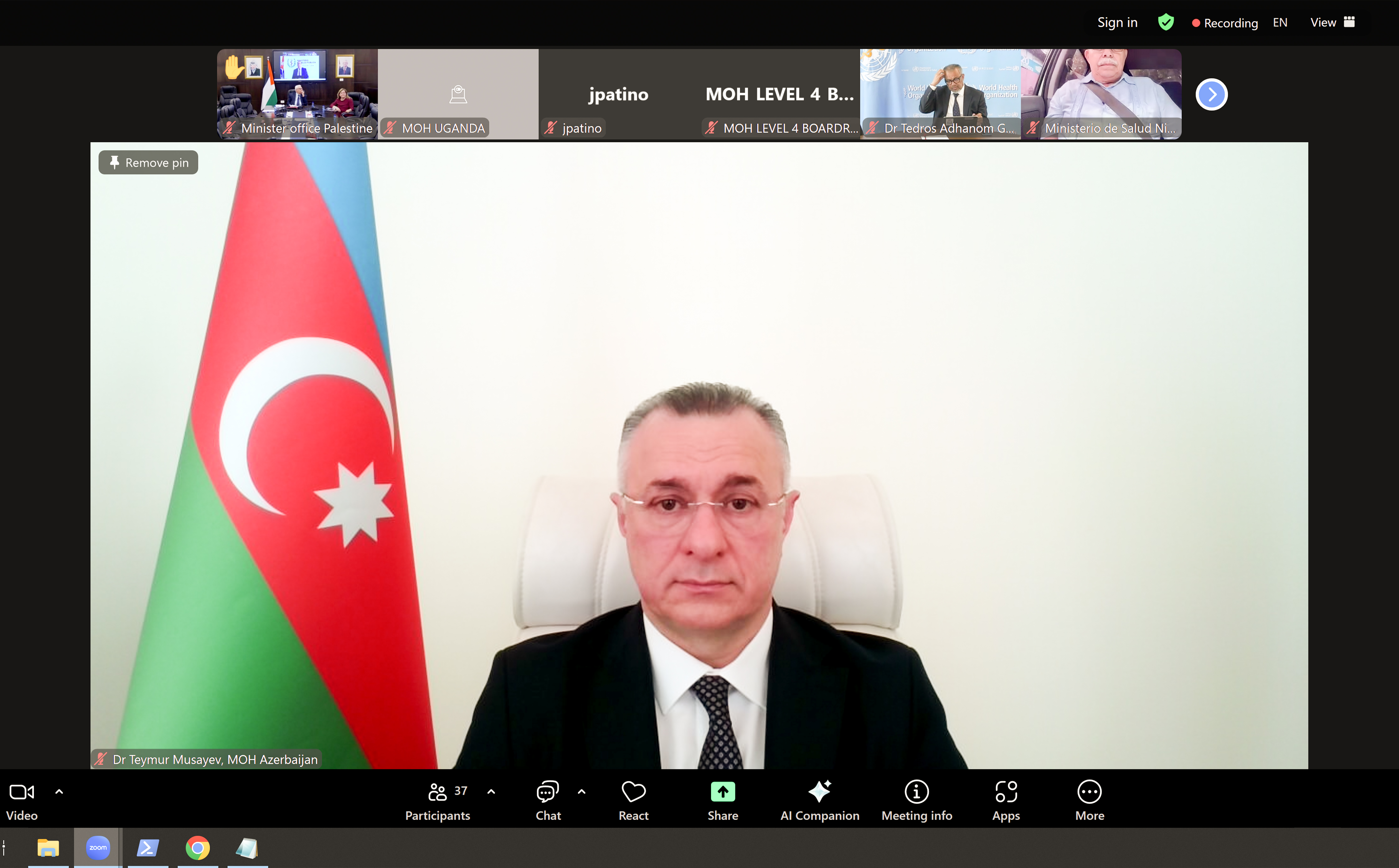An online meeting of health ministers of the Non-Aligned Movement member states was held
Online conference of the Ministers of Health of the Non-Aligned Movement (NAM) member and observer states was held under the chairmanship of the Republic of Uganda. The online meeting, held on the sidelines of the 78th session of the World Health Assembly, was dedicated to discussing global health challenges and appropriate solutions among the health ministers of NAM member and observer states.
The Director-General of the World Health Organization, Dr. Tedros Adhanom Ghebreyesus, welcomed the participants and highlighted the significance of the event, wishing success to the international conference.
Uganda’s Minister of Health, Dr. Jane Ruth Aceng, recalled that during the 19th NAM Summit held in Kampala in January 2024, the heads of state and government expressed their concern over the global threats posed by epidemics such as COVID-19, HIV/AIDS, malaria, tuberculosis, hepatitis, and other diseases: “The main objective of this year’s meeting is to facilitate experience-sharing among health ministers of NAM member states and to strengthen joint measures in response to global health threats posed by epidemics.”


Speaking at the online meeting, Azerbaijan’s Minister of Health, Teymur Musayev, emphasized that Azerbaijan had assumed the chairmanship of the Movement for the 2019–2023 period by unanimous decision of NAM member states. He noted that at the onset of the COVID-19 pandemic in early 2020, Azerbaijan approached its NAM chairmanship with great responsibility. The minister stated that Azerbaijan had put forward a number of initiatives to mobilize global efforts in the fight against the pandemic: “At the initiative of President Ilham Aliyev, a special session of the UN General Assembly was convened in December 2020 at the level of heads of state and government, dedicated to the fight against COVID-19. At the same time, Azerbaijan provided financial and humanitarian assistance to many countries — most of them NAM members — both directly and through the World Health Organization.”
“As in many countries of the world, the health and well-being of citizens is one of the main priorities of the state in Azerbaijan. As you know, in November 2024, Baku hosted the 29th session of the Conference of the Parties (COP29) to the UN Framework Convention on Climate Change. Climate change poses serious risks to health, particularly for vulnerable countries and communities on the frontlines of this crisis. These challenges require urgent action and renewed international solidarity. That is why the topic of climate and health held a central place in the COP29 agenda. Azerbaijan also supported the initiative to establish the 'Baku COP Presidencies’ Legacy Coalition on Climate and Health,’” said Minister Musayev.
He also noted Azerbaijan’s recent achievements in the health sector, including the implementation of mandatory health insurance, digitalization of healthcare services, and the transition to the Electronic Prescription System: “Azerbaijan is ready to share its experience and best practices in these areas.”
In conclusion, the Minister of Health of Azerbaijan emphasized the importance of prioritizing pandemic prevention, preparedness, and response on national agendas, ensuring optimal physical and mental health for all citizens, and achieving universal health coverage with a focus on primary healthcare: “This is essential for implementing the 2030 Sustainable Development Agenda and ensuring access to quality healthcare services, safe, effective, and affordable medicines, vaccines, diagnostics, and medical technologies.”
The ministers of health from NAM member and observer states highly praised Azerbaijan’s successful 4-year chairmanship of the Movement and expressed their gratitude to President Ilham Aliyev. It was particularly noted that during the most difficult period of the pandemic, Azerbaijan not only effectively fulfilled its chairmanship responsibilities but also significantly revitalized the Movement’s activities.
At the end of the meeting, the importance of strengthening international cooperation to achieve national health goals was emphasized.



